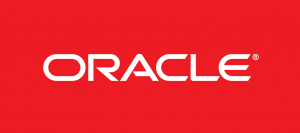In 19c or higher, it is no longer necessary to enable ‘Shared Servers’ on the catalog database, so Oracle recommends that (if you are using Oracle Native Encryption with sharding) you disable Shared Servers on the catalog database. This can be done by setting the database parameter shared_servers to “0” and restarting Oracle. Note that this is a global parameter set in the Container Database.
Oracle Sharding on Oracle Container Engine for Kubernetes (OKE) uses StatefulSet to provide stable, unique network identifiers and stable, persistent storage so you can create and manage your Oracle Sharding replica set natively in OKE with Oracle supported helm and chart templates. In addition, data is stored on persistent volume, so all the data is still there when a pod is recreated.
Related Resources:
Oracle Sharding on Docker GitHub Link: https://lnkd.in/dN2VUSXd
Oracle Sharding on OKE GitHub Link: https://lnkd.in/du2gfxG6
OCR (Oracle Container Registry) Link: https://lnkd.in/dTebi76i
The paper below describes an automated system that generates, selects, verifies, and maintains materialized views in the Oracle RDBMS; it presents a novel technique, called the extended covering subexpression algorithm, for the automated generation of materialized views. An extensive set of experiments is described that demonstrates the feasibility and efficiency of this approach. This system has been fully implemented and will be deployed on the Oracle Autonomous Database on the Cloud.
For more information see https://dl.acm.org/doi/abs/10.14778/3415478.3415533
MV2OCI is a new tool is permitting the load data and migration from “on-premises” to Oracle Cloud Database leveraging on Oracle Data Pump and within one command. Data Pump Import lets you import data from Data Pump files residing on the Oracle Cloud Database node.
For more information see Doc ID 2514026.1.
